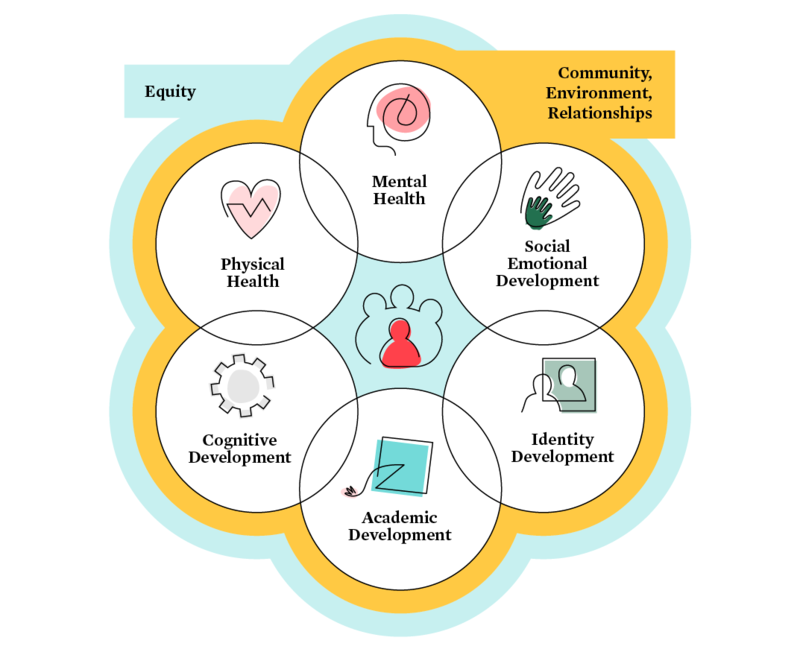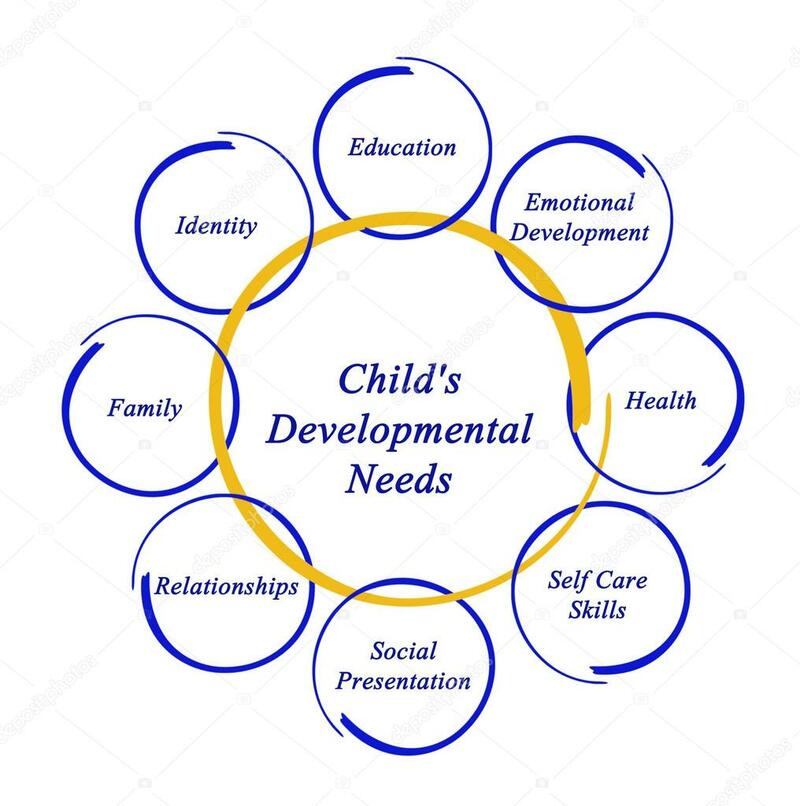Learning, Knowledge and Human Development MOOC’s Updates
Update #3: Socio-behavioral learning and parental depression
Make an Update: Dorothy Espelage has taken just one area – bullying at school – where she has used the methods of educational psychology to explore the social-emotional conditions of learning. Take an area of socio-behavioral learning interest or concern to you. What does the evidence tell? What are the main concepts we need to interpret the evidence?
__________________________
Without question the social and emotional conditions faced by people -- from young children to adults -- have large impacts on their learning. It is impossible for any of us to completely leave our troubles at the door when we enter a classroom or any learning environment. In this week’s module, Dorothy Espelage focused on bullying -- its dynamics, its prevalence, and its impact on learning. I would like to consider another socio-behavioral learning concern for children: depression among parents. Given the increased stresses during the past year of the COVID pandemic, this issue is of great concern in many people’s lives today. Parental depression, the evidence suggests, is associated with social and emotional problems in their children, poorer physical health [1] - and difficulties in learning and lower cognitive/ intellectual/academic performance. This is also true, according to a recent University of Michigan study, when kids were remotely learning at home during the pandemic shutdown. [2]
This is not a passing problem, however. In one study, almost half (45%) of pre-school age children screening positive for social-emotional problems had a parent with depressive symptoms. [3]
Studies have shown that parental depression correlates to the existence of social and emotional problems of their young children. In particular, “Various indices of cognitive-intellectual or academic performance have reliably been found to be associated with depression in mothers.” Depression in mothers is especially and strongly associated with lower reading, mathematics, and general knowledge of their children. [4]
To interpret this evidence, it may help to understand it in connection with a few concepts in educational psychology raised in our course materials. When Dr. Epelage from the University of Illinois spoke about bullying, she raised the question of whether bullying might be a social and emotional problem for which there is a genetic predisposition or genetic susceptibility (that is, something in a person's genetic makeup) that increases the likelihood of that person will engage in bullying Dr. Epelage noted a Canadian study that found no biological markers or genetic predisposition to bullying. [5] Depression, we know, is different. While other factors definitely have an effect, severe recurrent depression seems to have a traceable genetic link. Hereditary depression seems to represent approximately 40% of such cases. [6]
Other important concepts underlying our discussion of the impact of parental depression on a child’s learning were discussed by Dr. Denice Hood, including “dimensions of student development.” First, Dr. Hood took care to distinguish growth and development from change. Change -- simply meaning an altered condition -- can be positive or negative. Development, however, is generally seen as positive growth and is a key goal of education at any level, from K-12 through higher education. [7]
Certain dimensions (or vectors) of student development are relevant in the context of younger students, though Dr. Hood spoke about college students. For example, the first vector mentioned -- developing competence -- clearly applies to younger children developing their physical, manual, and interpersonal skills. Similarly, the vector of establishing identity begins from a young age as we begin to see and understand differences among people. Another vector discussed by Dr. Hood -- managing emotions -- is of particular relevance to the issue focused on here, the effects of depression. [8]
K-12 students are at an age when they are recognizing and experiencing a widening range of feelings, and learning (even struggling for many) to develop their ability to express, control, and respond to emotions in responsible ways. Of course, for children of parents with depression, their feelings and their emotional capacity to manage them may be fraught and challenging.
Similarly, when considering the impact of parental depression, we should make use of another important concept embraced by many educators and organizations -- the emphasis on the concept of a “whole child” approach to learning and education. The idea behind this concept is that the foundation for a child’s healthy human development requires that education touch multiple aspects or needs of the child. The Chan-Zuckerberg Initiative presents this idea in an easy-to-understand graphic that lays out the range of areas in which children develop through education. [9]
This fuller concept of a child’s development needs may be described in different ways -- but they share core aspects such as identity, health, emotional development, and educational/academic development. The graphic below used by the nationally known Bright Futures health promotion initiative in the U.S., offers another example of this. [10]
What are we to take from all this?
First, just as Dr. Epelage asked, “Can we reduce bullying?” we might ask “Can we reduce the educational risks to children from parental depression?” When we consider the evidence and concepts applicable to the impacts of parental depression on childrens’ education, they suggest the answer is “yes” -- if we take a “whole child” approach and remember to focus on both the child and the parents.
If we want to improve the prospects for the child, studies indicate that we need to connect both the child and parents to mental health services. [11] This speaks to the value of combining social and emotional learning (SEL) strategies to promote the social-emotional health of the child/student together with strategies to address parental mental health.
A combination of Interventions can work. “Multiple studies have demonstrated the effectiveness of high-quality preschool, home visiting, parenting programs, and early childhood mental health services in improving behavioral trajectories” [12] -- and thus can improve the social-emotional conditions for learning.
____________________
Sources:
1. Associations Between Depression in Parents and Parenting, Child Health, and Child Psychological Functioning, England MJ, Sim LJ, editors. National Academies Press (2009). https://www.ncbi.nlm.nih.gov/books/NBK215128/
2. Parenting activities and the transition to home-based education during the COVID-19 pandemic, Shawna J. Lee, Kaitlin P. Ward, Olivia D. Chang, Kasey M. Downing, Children and Youth Services Review, (March 2021). https://news.umich.edu/parents-depressed-by-pandemic-had-negative-impact-on-kids-education-well-being/
3. Social-Emotional Problems in Preschool-Aged Children: Opportunities for Prevention and Early Intervention, Courtney M. Brown, MD, MS; Kristen A. Copeland, MD; Heidi Sucharew, PhD; et al, JAMA Pediatrics, Oct 2012
https://jamanetwork.com/journals/jamapediatrics/fullarticle/1355372
4. Silverstein, M., Augustyn, M., Cabral, H., and Zuckerman, B. (2006). Maternal depression and violence exposure: Double jeopardy for child school functioning. Pediatrics (Sept. 2006). https://pubmed.ncbi.nlm.nih.gov/16950968/
5. A Genome-Wide Significant Linkage for Severe Depression on Chromosome 3: The Depression Network Study, American Journal of Psychiatry, Volume 168, Issue 8 (August 2011)
https://ajp.psychiatryonline.org/doi/full/10.1176/appi.ajp.2011.10091342
6. Learning, Knowledge, and Human Development, University of Illinois, Module on “Perceptions, Definition, and Prevalence” https://www.coursera.org/learn/learning-knowledge-human-development/lecture/4HmDk/perceptions-definition-and-prevalence
7. Learning, Knowledge, and Human Development, University of Illinois, Module on “Dimensions of Student Development”
https://www.coursera.org/learn/learning-knowledge-human-development/lecture/8938B/dimensions-of-student-development
8. See Learning, Knowledge, and Human Development, University of Illinois, Module on “7 Vectors of Student Development”
https://www.coursera.org/learn/learning-knowledge-human-development/lecture/E1uCQ/7-vectors-of-student-development
9. See https://chanzuckerberg.com/education/whole-child-approach-to-education/
10. See https://www.brightfutures.org/development/middle/checklist.html
11. Brown, et al, JAMA Pediatrics, Oct 2012.
12. Brown, et al, JAMA Pediatrics, Oct 2012.



